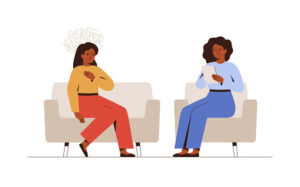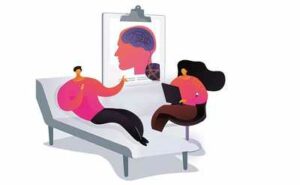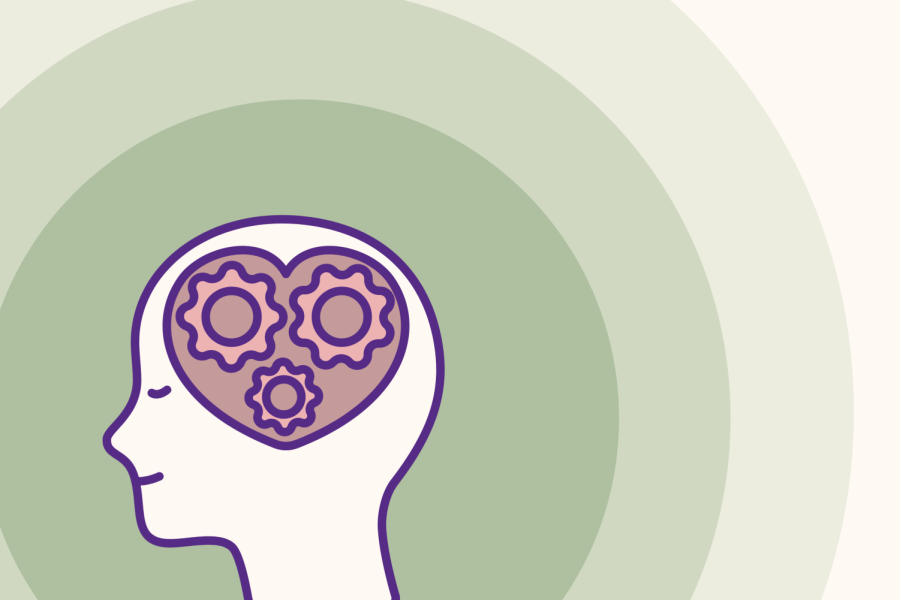If you’re like most people, you probably think of therapy as a last resort. You only go to therapy if you’re struggling with a mental health disorder or if you’ve hit a dead-end in your personal life. What you may not realize is that there are many benefits to therapy that can help improve your life in ways you never thought possible! In this blog post, we will discuss the many benefits of therapy and how it can help you live a happier, healthier life. We will also learn some additional information that is important to know when thinking about undertaking therapy.
Contents
What Is Therapy?
Therapy is a process of treatment for mental, emotional, and behavioral issues. Therapy usually focuses on problem-solving to change negative patterns of thought and behavior. It often includes both short and long-term goals which further lead to the overall betterment of an individual’s quality of life.
Benefits Of Therapy

Therapy can provide you with many benefits, including the following:
- Therapy can help you manage your mental health conditions. It can also help you cope with daily life stress and emotional balance, and also regulate your mood.
- It helps you learn how to communicate better with others and develop healthier relationships. Skills like honesty, open communication, and setting realistic expectations, which are central to all relationships, get enhanced.
- A therapeutic space provides you with a safe, inclusive, non-judgmental, and positive space for you to share and express.
- It assesses and validates your past and what underlying effects those incidents may have on your present.
- A sense of unconditional positive regard between the therapist and client gives a very nurturing and influential positive experience.
- In case of clinical symptoms of a psychiatric disorder, a professional can provide an official diagnosis and further plan the treatment.
- It can enhance your self-esteem, give you clarity on thoughts, and supports you in the process of understanding yourself better.
- As and when you start understanding your thoughts better, skills like problem-solving, critical thinking, and, effective communication get refined.
- It also helps in treating physical symptoms such as tense muscles, headaches, digestion issues, etc.
How To Know You Need Therapy?
Not everyone who benefits from therapy realizes that they need it. If you’re experiencing any of the following, you may benefit from therapy:

- getting overwhelmed or stressed out
- feeling sad or numb most of the time
- witnessing major life events like trauma, accident, assault, pandemic, loss of a loved one, etc.
- experiencing unexplainable physical symptoms and aches
- having problems with eating or sleeping normally
- struggling with anxiety or panic attacks
- experiencing low self-esteem
- sudden increase or decrease in libido
- having thoughts of self-harm, death, or existentialism
- losing interest in activities that usually bring joy and pleasure
Things To Know Before Starting Therapy
Before you start therapy, there are a few tips that can make the process smoother and more efficient.
- Therapy is not a quick fix. It takes time and effort to see results. Don’t expect miracles overnight.
- Therapy is not easy: it can be hard to talk about your feelings and problems, but it’s worth it in the end.
- You need to be willing to commit: therapy requires time and energy, so you need to be willing to put in the work.
- A therapist will not advise you on how to deal with things. Rather, therapy empowers and enables you to make decisions for yourself.
Types Of Therapy

Since human behavior and emotions are ever-evolving and dynamic, therapy is not restricted to following any specific types of techniques. Some of the most commonly used therapeutic techniques are:
Cognitive Behavioral Therapy focuses on how your thoughts, feelings, and behaviors are interconnected. It helps you identify and change negative thoughts and beliefs that may be contributing to your problems.
Psychodynamic Therapy focuses on the unconscious mind and how past experiences can influence current behavior. It helps you understand why you do the things you do and how to make changes in the future.
Eclectic Therapy is an open, integrative form of psychotherapy that adapts to the unique needs of each specific client,
Interpersonal Therapy focuses on relationships and how they affect emotions and behavior. It helps you improve communication skills, resolve conflicts, and build healthy relationships.
Art Therapy involves the use of creative techniques such as drawing, painting, or coloring to help people express themselves artistically and examine the psychological and emotional undertones of their art.
Play therapy utilizes play, children’s natural medium of expression, to help them express their feelings more easily through toys instead of words.
Family Therapy helps you resolve conflicts and improve communication within your family. It can also help you deal with issues like addiction, violence, or mental illness within the family.
Group Therapy involves meeting with a group of people who share common problems or goals. It provides support and allows you to share your experiences with others.
Who To Approach For Therapy?

There are various types of professionals who specialize in providing treatment for mental health issues. Some commonly known categories are counselors, clinical psychologists, psychiatrists, and social workers, among others. Each type of professional further has a different type of qualification, method, and plan of action for treatment.
It is important to approach the right type of professional for the most effective treatment. Here are some things to remember:
- If you are looking for prescribed medication for a mental disorder, a psychiatrist is the most suitable for you.
- If you require a diagnosis or treatment for a disorder through therapeutic strategies, a clinical psychologist can help with those issues.
- In case you are struggling with daily life issues relating to self, work/school, or relationships, a counselor will be the best fit for your problems.
Mental health professionals are interdependent. Depending upon the intensity or requirement of your situation, you may seek help from two types of therapists at the same time. For severe cases, medication and therapy also go hand in hand.
Choosing the right therapist can also depend on factors such as their fee, mode of consultancy, geographic location, language, educational qualification, etc.
Conclusion
Therapy can provide several benefits for people who are struggling with mental health disorders or personal problems. If you are willing to put in the work, therapy can be an incredibly beneficial experience that can further help you overcome your problems and improve your life.
A Word From Therapy Mantra
Your mental health — Your psychological, emotional, and social well-being — has an impact on every aspect of your life. Positive mental health essentially allows you to effectively deal with life’s everyday challenges.
At TherapyMantra, we have a team of therapists who provide affordable online therapy to assist you with issues such as depression, anxiety, stress, workplace Issues, addiction, relationship, OCD, LGBTQ, and PTSD. You can book a free therapy or download our free Android or iOS app.


